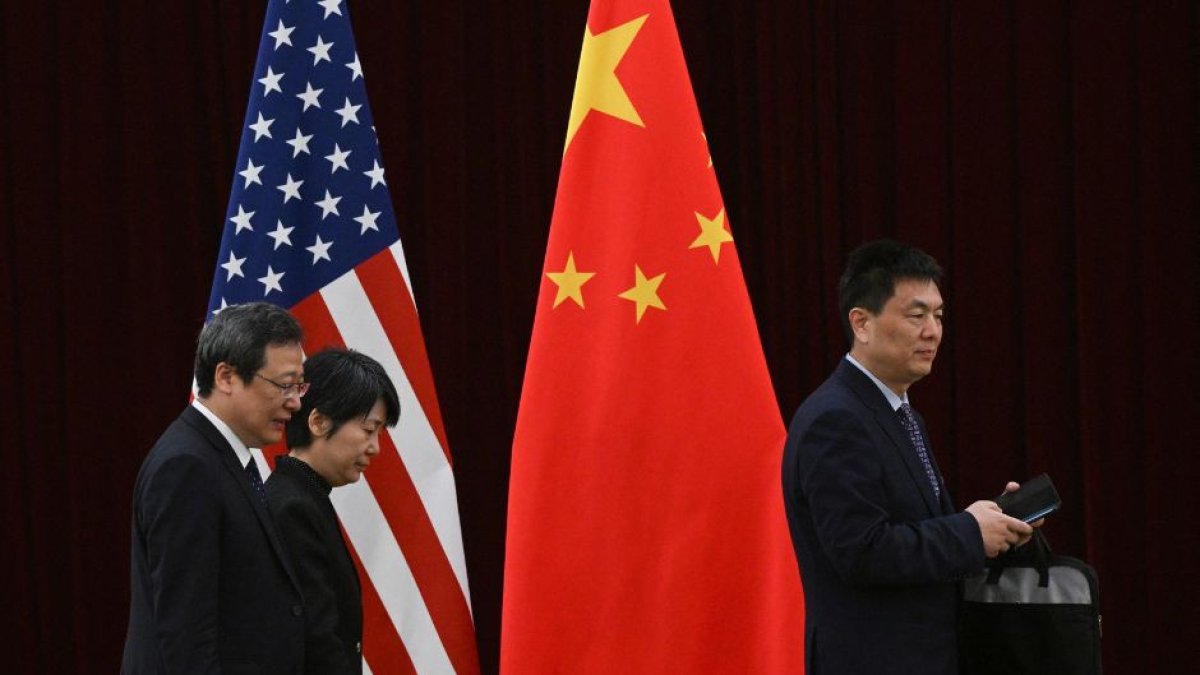China is using artificial intelligence to spread electoral disinformation in the United States and Taiwan
The Asian giant is using fake accounts on social media to push divisive issues related to drug use in the US, immigration policies and racial tensions.

(AFP)
A Microsoft report found that China is improving its influence operations on social networks with artificial intelligence (AI) to interfere electorally in the United States and Taiwan with false information.
According to a report in The Wall Street Journal, China orchestrated an online campaign with AI-powered fake accounts to use politically divisive talking points between American and Taiwanese voters.
“The tactics identified in a new cyber-threat report published Friday by Microsoft are among the first uncovered that directly tie the use of generative AI tools to a covert state-sponsored online influence operation against foreign voters,” the WSJ reads. “They also demonstrate more advanced methods than previously seen.”
According to the report, many of the accounts on X (Twitter) linked to China are several years old, which makes them more credible users in the eyes of the public.
Last year, these accounts began publishing content related to drug use in the United States, immigration policies, and internal racial conflicts.
In addition, the accounts also sometimes asked their followers for their opinions on presidential candidates, a tactic apparently used to learn American voters’ ideas about the candidates and leverage them into critical content later.
“In some cases, these posts relied on relatively rudimentary generative AI for their imagery,” the WSJ reported, citing the Microsoft report.
This report comes after the State Department accused China of spending billions of dollars on global disinformation campaigns last fall. According to the report, US officials are concerned about China’s growth in perfecting its tactics to influence public opinion in other countries, at least on social media.
Likewise, Tom Burt, head of security and customer trust at Microsoft, told the WSJ that China has increased its cyberattacks in the last six months and that these activities represent only the tip of the iceberg or the beginning of more complex and systematic operations.
“We’re seeing them experiment,” Burt said. “I’m worried about where it might go next.”
According to Microsoft, the most effective, advanced and AI-powered disinformation systems are currently used in Taiwan, where it was detected that China managed to create fake audio with AI of a former presidential candidate who, in the clip, supported one of the remaining candidates.
“That marked the first time the technology giant’s researchers on threats had seen a nation-state actor using AI to attempt to influence a foreign election,” the WSJ reported.
According to the report, fake audio is quite simple to create with AI and has also proven tremendously effective in manipulating users on social networks.
China also apparently took advantage of some tragic news events to spread disinformation on social media and attempt to damage the reputation of U.S. authorities.
For example, the WSJ cited a November report from Microsoft revealing that China’s online army “pounced on a train derailment in Kentucky, spreading conspiracies on social media that falsely accused the U.S. government of being responsible.”
This WSJ report also comes a month and a half after the Reuters agency reported that the United States government, during the Trump era, had launched a secret CIA operation on Chinese social networks against the Xi Jinping regime.
That operation, launched in 2019, was proposed as a covert propaganda maneuver to turn public opinion against the Chinese Communist Party. It is similar to what China has been doing recently, but with powerful AI that helps generate increasingly credible and effective content.

























